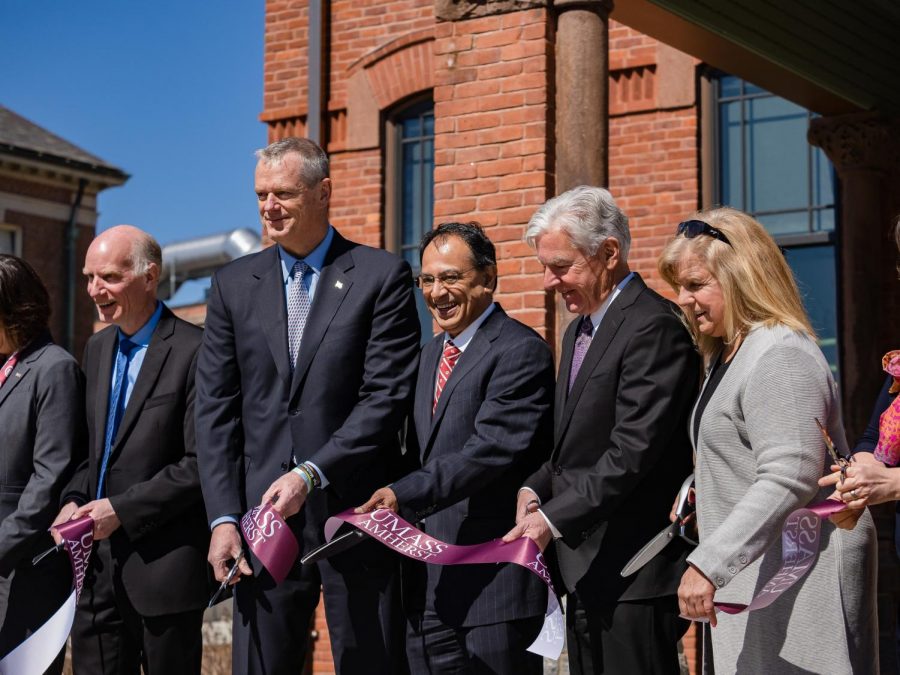Researchers from the University of Massachusetts have released two reports on the economic impacts of the MGM Springfield casino throughout Massachusetts.
The reports reflect a study conducted by researchers from the Donahue Institute, which provides analysis on public policy issues in the Commonwealth. The study was sponsored by the Social and Economic Impacts of Gambling in Massachusetts. The two reports released were the “construction impact report” and the “real estate impact report.”
The construction impact report outlines the economic impacts of the casino’s construction and “its economic contribution to the Commonwealth.” Opening in August 2018, the casino cost $573.3 million to be built.
In terms of the money spent, $373.8 million went to Massachusetts-based firms, with $194.3 million of that money going to firms in Hampden County. In addition, “over two-thirds of the construction workers were Massachusetts residents.” The most common place of residence among the workers was Hampden County, which was home to 36 percent of the workers.
The report concluded that statewide economic activity increased by $849 million over “the five-year construction period,” and net new activity totaled $512 million. Additionally, the report found that 1,000 new jobs were “created or supported by this economic activity,” accruing $397 million in income.
The researchers also found that every $2 of construction spending led to $1 of additional activity in the state, and every $1 of compensation to construction workers created an additional $1.29 of income to others in the state.
“Overall, we found that every county in the Commonwealth saw some economic benefit from the construction of MGM Springfield,” Rod Motamedi, the lead author of the construction impact report and a senior research manager at the Donahue Institute, said in a UMass press release on the reports. “The economic benefits did ultimately tend to grow with proximity to Springfield.
The real estate impact report looked to “document any notable changes to the Springfield area’s real estate market following the awarding of a casino license to MGM Springfield in February 2014 and the subsequent opening of the first resort-style casino in Massachusetts in August of 2018.”
In the conclusion of the report, the researchers found the awarding of a casino license to MGM Springfield and the casino’s opening “have not affected Springfield’s real estate market, or that of the surrounding communities, in any major way.” However, the report also concludes that the casino may have led to unused space in the city and could lead to a greater need for housing in smaller communities outside of Springfield.
Additionally, the report found that single-family home sales in Springfield increased in 2014, shortly before MGM was awarded the casino license, and continued to increase through the casino’s opening in 2018, but notes that “it is difficult to truly distinguish the impact of the casino from the more general economic recovery on sales of single-family homes.”
“The period since the awarding of licenses around the state has been a time of strong economic growth in Massachusetts,” said Mark Melnik, the director of economic and public policy research at the Donahue Institute.
“This broader economic context is important to keep in mind when interpreting the results of the report since it is difficult to disentangle which real estate trends are attributable to the casino versus other economic trends,” he added.
The results of the reports were presented to the Massachusetts Gaming Commission on Sept. 26, which will inform the Commission’s annual recommendations to the Legislature on gaming regulations.
Will Mallas can be reached at [email protected] and followed on Twitter @willmallas.





















joey d • Oct 17, 2019 at 1:16 am
What about the economic impact of compulsive gambling? What about the economic impact of gambling by addicts? What about the economic impact of spending money on something that overall results in a net loss to people who play the casino ‘games’?
Question. Who paid for this study? If it was not paid for by the MGM or gaming board commission. Then was it requested that it be done ?